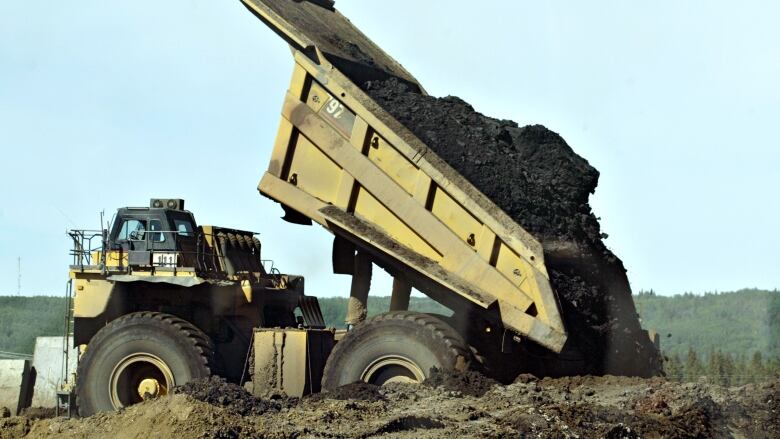Partial bitumen upgrader could boost Alberta GDP by $505M, study says
University of Calgary research paper touts emerging technology as economical 'middle ground'

An investment in the emerging technology of partial bitumen upgrading has the potential to pump hundreds of millions of dollars into the provincial economy, a University of Calgary study says.
A push to accelerate development of the technology which would turn oilsands bitumen into medium-grade crude was one of the recommendations made by the royalty review panel in 2015.
A report released Thursday by the U of C's School of Public Policy argues that even one partial upgrader, churning out 100,000 barrels per day, could boost Alberta's annual GDP by $505 million and create 179,000 person-years of employment.
"Full upgraders have proved uneconomical without substantial public subsidies, but partial upgrading offers a potentially economical middle ground,"
Funding for the research was provided by Alberta Innovates Energy and Environment Solutions, a Alberta government agency for advancing energy and environmental technology innovation.
Data for the study was provided by MEG Energy, a private company that is currently working to develop partial upgrader technology. Alberta Innovates also helped fund research conducted by MEG.
The U of C authors argue that partially upgraded bitumen is cheaper to transport, since it does not need diluent added to the pipeline to move it through.
"The value of each barrel produced would also be higher, benefitting oilsands producers," the study says, pegging the value uplift at $10 to $15 per barrel.
"Partial upgrading also seems to promise a lower emissions intensity profile compared to other bitumen processing technologies."
In 2015, oilsands production accounted for about 81 per cent of total Alberta's crude oil production.
About 60 per cent of that production was non-upgraded bitumen, which is costly to transport since it requires dilution and difficult and costly to process into refined petroleum products relative to lighter types of crude oil.
But the market for synthetic crude oil processed by full upgrading is becoming too hard for Alberta producers to compete in, the report says.
The report notes that the big players, such as CNOOC and Suncor, have backed off plans to build full upgraders at their oilsands projects, partly driven by the growing supply of light U.S. unconventional oil
"Partial upgrading therefore represents an opportunity to process bitumen into a higher-value product when compared to its raw state, and a product with more favourable market conditions (less competition) than a full synthetic crude oil," the report says.












_(720p).jpg)


 OFFICIAL HD MUSIC VIDEO.jpg)
.jpg)



























































































